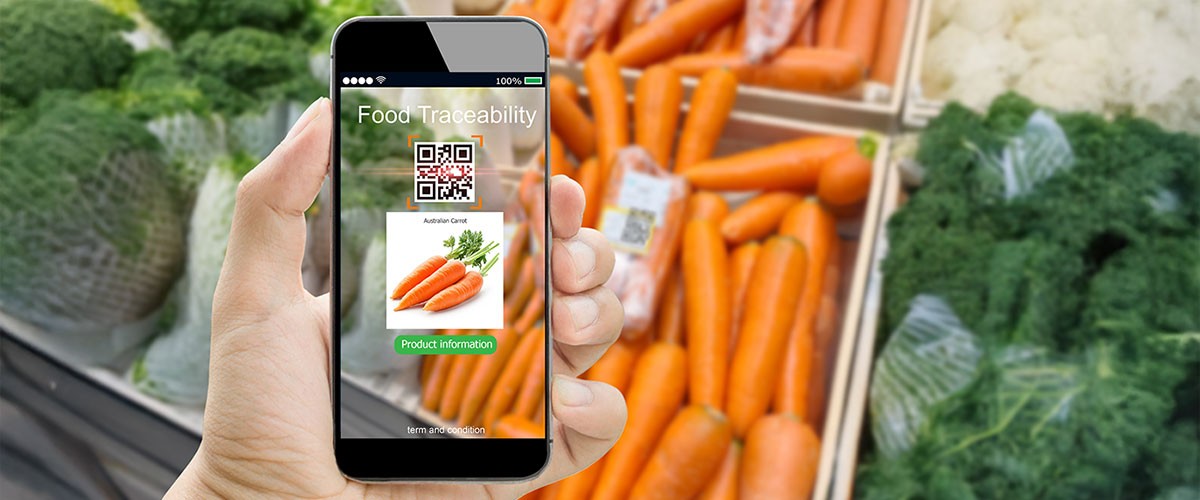Top Strategies for Gaining a Competitive Edge in the Wholesale Food Industry
Wholesale Distribution
Food
Supply & Demand Planning
CRM & Sales
Software / Technology
The wholesale food industry in 2025 is facing an unprecedented wave of transformation. With increasing supply chain disruptions, sustainability demands, rapid technological innovation, and ever-evolving customer expectations, companies can no longer rely solely on price or product variety to stand out.
The competitive landscape has grown sharper, and the stakes are higher. To thrive in this environment, businesses must adopt forward-thinking strategies that address these modern challenges and turn them into opportunities for long-term growth and differentiation.
Understanding the Competitive Landscape
In the wholesale food industry, competition traditionally revolves around four primary areas: pricing, product range, delivery speed, and customer service. While these factors remain important, they are no longer sufficient to guarantee success.
Companies need to build a sustainable competitive advantage rooted in innovation, value-added services, and strategic differentiation to truly stand out. This means looking beyond the basics and embracing holistic, customer-centric strategies that evolve with the market.
Top Strategies for Gaining a Competitive Edge
Strategy 1: Supply Chain Optimization & Efficiency
A well-optimized supply chain is one of the most powerful tools a wholesale food distributor can have. Efficient supply chains lead to cost savings, faster delivery times, better inventory management, and reduced food waste.
Key Tactics:
Implement Technology: Utilize inventory management systems, route optimization software, and predictive analytics to forecast demand and minimize overstocking or understocking.
Strengthen Supplier Relationships: Develop collaborative partnerships with suppliers to improve consistency and negotiate better terms.
Consider Vertical Integration: Gain more control over your supply chain by integrating upstream suppliers or downstream distributors.
Companies like VAI offer integrated ERP solutions that support real-time inventory tracking, predictive ordering, and logistics management, empowering food businesses to streamline operations and meet customer demand efficiently.
Strategy 2: Exceptional Customer Relationship Management (CRM)
Success in the wholesale food sector hinges on building long-term, meaningful relationships with clients, whether they're restaurant chains, grocery retailers, or institutional food services.
Key Tactics:
Leverage CRM Systems: Track customer interactions, preferences, and order history to personalize service.
Offer Proactive Support: Anticipate client needs and solve issues before they escalate.
Focus on Communication: Maintain regular, transparent communication with clients to build trust and loyalty.
Strategy 3: Leveraging Technology and Digital Transformation
The digital revolution is reshaping the wholesale food industry, and companies that embrace tech will outpace competitors.
Key Tactics:
Launch E-Commerce Platforms: Provide customers with online ordering systems for convenience and accessibility.
Use Data Analytics: Gain insights into sales trends, customer behavior, and inventory cycles.
Automate Operations: Implement automation in warehousing, invoicing, and fulfillment to reduce manual errors and increase speed.
Enhance Digital Marketing: Build a strong online presence through SEO, social media, and targeted advertising.
With platforms like VAI’s S2K Enterprise, food wholesalers can seamlessly integrate e-commerce, CRM, and supply chain tools into a single, user-friendly interface.
Strategy 4: Offering Value-Added Services
Going beyond the core offering of food products can significantly enhance customer satisfaction and retention.
Key Tactics:
Menu Planning Support: Help clients optimize their offerings based on trending ingredients or dietary needs.
Custom Packaging: Offer private labeling or custom packaging options for branding.
Training Programs: Provide food safety, handling, or preparation training to client teams.
Marketing Assistance: Supply materials or co-branded content to help clients promote products.
Strategy 5: Focusing on Sustainability and Ethical Sourcing
Sustainability isn’t just a trend—it’s a customer expectation. Businesses must align their practices with ethical and environmentally conscious standards.
Key Tactics:
Source Locally: Reduce carbon footprint and support community growers.
Eco-Friendly Packaging: Use recyclable or biodegradable materials.
Green Transportation: Adopt electric or fuel-efficient delivery vehicles.
Certifications: Obtain certifications such as USDA Organic, Fair Trade, or Non-GMO Project Verified.
A NielsenIQ study found that 73% of global consumers say they would change consumption habits to reduce environmental impact.
Strategy 6: Niche Market Specialization
Identifying and serving a specific niche within the wholesale food industry allows businesses to build a loyal customer base and a strong brand identity.
Key Tactics:
Specialty Products: Focus on organic, gluten-free, vegan, or ethnic food products.
Cultural Expertise: Understand the unique needs of the niche, from sourcing to packaging.
Tailored Service: Offer niche-specific value-added services that competitors overlook.
This strategy works particularly well in fragmented markets where mainstream competitors struggle to meet unique demands.
Strategy 7: Data-Driven Decision Making
Data is one of the most underutilized assets in the food industry. Making informed decisions can elevate a business from reactive to proactive.
Key Tactics:
Monitor Performance Metrics: Track KPIs like delivery times, customer satisfaction, and order accuracy.
Analyze Customer Behavior: Understand buying patterns to predict demand and suggest cross-sells.
Track Market Trends: Use data to stay ahead of consumer preferences and competitor strategies.
According to McKinsey, data-driven organizations are 23 times more likely to acquire customers and 6 times more likely to retain them.
Implementing and Maintaining Competitive Advantage
Having a strategy is just the beginning. Long-term success in the wholesale food industry requires a commitment to execution, adaptability, and culture.
Key Focus Areas:
Strategic Planning: Align company goals with clearly defined actionable initiatives.
Resource Investment: Ensure you have the tools, talent, and budget to execute your strategy.
Culture of Innovation: Encourage employee feedback, experimentation, and continuous improvement.
Ongoing Monitoring: Regularly review performance and market conditions to stay competitive.
To stay competitive in 2025, businesses must go beyond traditional tactics and embrace holistic, forward-thinking strategies. From optimizing supply chains and leveraging technology to focusing on niche markets and sustainability, there are numerous ways to stand out
By adopting these food industry strategies, companies can boost profitability, increase market share, and future-proof their operations. Ready to take the next step? Explore how VAI can help you implement these strategies with powerful business solutions tailored for the wholesale food industry.












